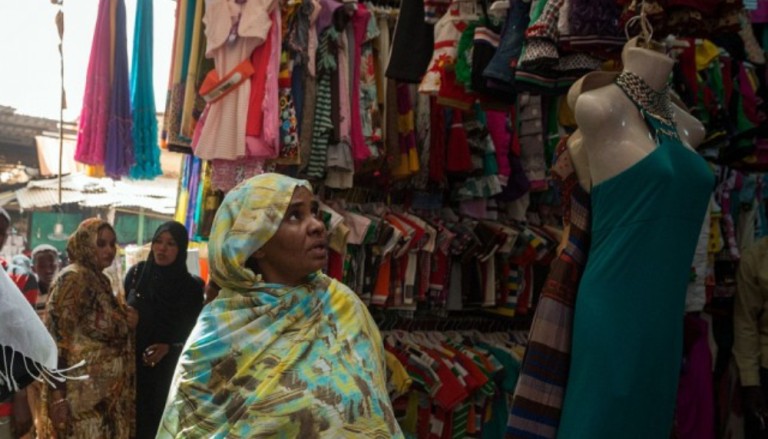Sudan’s inflation rises to 34,23% in July: CBoS

August 15, 2017 (KHARTOUM) – Sudan’s Central Bureau of Statistics (CBoS) reported that inflation has increased to 34,23 % in July from 32,63 in June, a rise of 4.90%.
Sudan’s inflation rate continued to rise for thirteen consecutive months since April 2016. However, last June it dropped to 32,63% from 35,52 %, a decline of 3,9%.
According to the CBoS monthly bulletin on Monday, the twelve commodity and service groups contributed to the increase in inflation at varying rates.
The food and beverage group contributed to the overall price rise by % 52,32 while the clothing and footwear group share was 8,82%.
The contribution of the other groups was as follows: 5,86% for the health group, 4,89% for the communications group, 4,69% for the transportation group, 3,46% for the housing, water, electricity and gas group and 3,02% for the home appliances group.
On the other hand, the education group contributed 2,93%, the miscellaneous goods and services share was 2,90% while the restaurants and hotels group contributed 2,64% and the tobacco group share was 2,62%.
The CBoS pointed out that the price of consumer goods and services in urban areas has increased to 29,82% in July compared to 28,98% in June, a rise of 2,89%.
In rural areas, the price of consumer goods and services has risen to 38,31% compared to 35,95% in June, an increase of 6,56%.
The highest increase in the price of goods and services in July was registered in Kassala State where inflation reached 39,17% compared to 32,40 in June.
Last May, Sudan’s finance minister said inflation rate has jumped to 33,7% in the first quarter of 2017, compared to 12.3% for the same period last year, an increase of more than 260%.
He attributed the increase in inflation rate to the impact of the fiscal policy reforms implemented by the government at the end of last year.
In November 2016, Sudanese government lifted fuel subsidies and increased electricity price in a bid to control a surge in inflation and stop the fall of Sudanese pound in the black market.
According to the 2017 budget, the growth rate would decline from 6,4% in 2016 to 5,3% and the targeted average inflation rate is 17%.
Prices and services have soared in Sudan since South Sudan seceded in 2011, taking with it three-quarters of the country’s oil output, the main source of foreign currency used to support the Sudanese pound.
The Sudanese pound has lost 100% of its value since South Sudan’s secession, pushing inflation rates to record levels given that country imports most of its food.
Ordinary citizens continue to complain from cost of living increases that impaired their access to basic commodities.
(ST)
